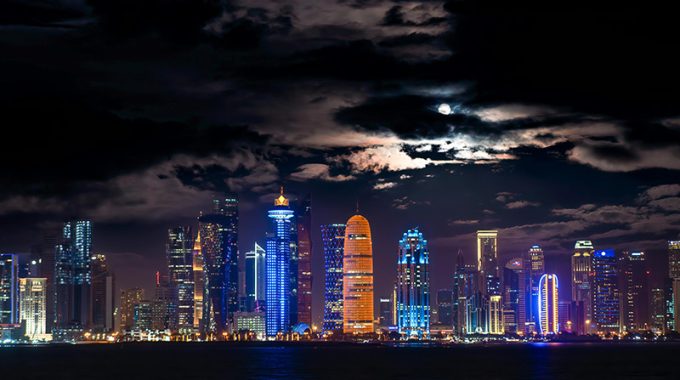
An overview of the Qatar 2022 FIFA World Cup
If you’re anything like me, you’ll already be getting excited about the upcoming Euro 2024 tournament hosted in Germany. England have one heck of a squad and with the likes of Harry Kane in unbelievable form this season at Bayern Munich, I genuinely understand why we’re up there with the favourites. Undoubtedly, it’ll all end in disappointment, but I’ll be supporting the lads all the way.
With the Euro’s kicking off this summer, here is an overview of the previous major tournament. How much can you remember about the 2022 FIFA World Cup hosted in Qatar?
20 facts about the 2022 FIFA World Cup
- Host Country: Qatar became the first Middle Eastern nation to host the FIFA World Cup.
- Unique Timing: The tournament was held from November 20 to December 18, 2022, marking the first World Cup to be played in the winter months.
- Expanded Format: The 2022 World Cup featured 32 teams, up from 24 teams in the previous edition.
- Stadiums: Matches were played across eight venues in five host cities: Al-Daayen, Al-Khor, Al-Rayyan, Al-Wakrah, and Doha.
- Inaugural Appearance: The Qatari national team made its debut in the FIFA World Cup as the host nation.
- Argentina’s Victory: Argentina won the tournament, defeating France 3-2 in the final match held at the Lusail Iconic Stadium in Lusail.
- Top Scorers: The Golden Boot award for the top scorer of the tournament was won by Kylian Mbappé of France, who scored a total of 8 goals.
- High-Scoring Matches: The tournament witnessed several high-scoring matches, with an average of over 2.5 goals per game.
- VAR Implementation: Video Assistant Referee (VAR) technology was utilized in the tournament to assist match officials in making critical decisions.
- Fan Experience: Despite the ongoing COVID-19 pandemic, fans from around the world flocked to Qatar to support their teams, albeit with certain restrictions and safety measures in place.
- Cultural Exchange: The tournament provided an opportunity for cultural exchange and celebration, with fans embracing Qatari hospitality and experiencing the country’s rich heritage.
- Legacy Projects: The World Cup spurred significant infrastructure development in Qatar, including the construction of modern stadiums and transportation systems, leaving a lasting legacy for the country.
- Environmental Sustainability: Qatar emphasized environmental sustainability in its World Cup preparations, implementing eco-friendly initiatives such as solar-powered stadiums and carbon-neutral transportation.
- Volunteer Program: A dedicated volunteer program was established to support the smooth operation of the tournament, with volunteers from Qatar and around the world contributing to its success.
- Diverse Participation: The tournament featured teams from diverse regions and continents, highlighting the global appeal of football.
- Fair Play: The FIFA Fair Play Award recognized teams and individuals for exemplary sportsmanship and fair play throughout the tournament.
- Youth Engagement: The World Cup inspired young football enthusiasts in Qatar and beyond, fostering a passion for the sport and promoting active lifestyles among youth.
- Cultural Events: Alongside the football matches, the tournament featured various cultural events, exhibitions, and entertainment programs showcasing Qatar’s rich cultural heritage.
- Economic Impact: The World Cup generated significant economic benefits for Qatar, boosting tourism, infrastructure development, and international investment in the country.
- Historic Moment: The 2022 FIFA World Cup in Qatar will be remembered as a historic moment in the country’s history and a milestone in the evolution of the FIFA World Cup tournament.



![European Football Tournament 2024 Fixtures Wallchart – PDF [DIGITAL DOWNLOAD]](https://football-wallcharts.co.uk/wp-content/uploads/2024/05/Football-Wallcharts-Etsy-Wallchart-PDF-700x700-1-480x480.png)
![European Football Tournament 2024 Wallchart – Adobe Illustrator AI Vector Design File [DIGITAL DOWNLOAD]](https://football-wallcharts.co.uk/wp-content/uploads/2024/05/Football-Wallcharts-Etsy-Wallchart-Adobe-Vector-700x700-1-480x480.png)
This Post Has 0 Comments